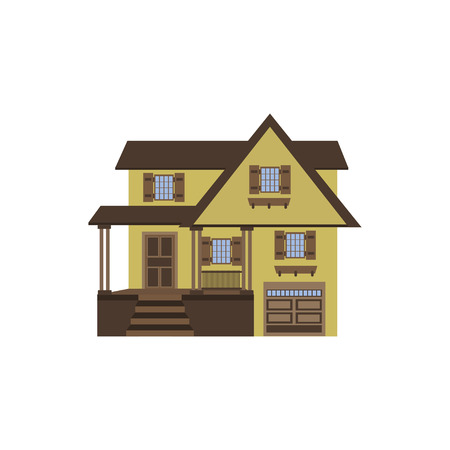1. Understanding the Importance of Accurate Pricing
In the U.S. real estate market, setting the right price for a property is one of the most critical steps in the selling process. Accurate pricing doesn’t just attract more potential buyers—it also helps you avoid long periods on the market and ensures that your home sells for its true value. Let’s explore why getting the price right matters so much and what can happen if you don’t.
How Pricing Impacts Buyer Perception
Buyers today are savvy and have access to lots of information online. If your home is priced too high, it may sit on the market longer, leading buyers to wonder if something is wrong with it. On the other hand, if it’s priced too low, you might not get the return you deserve. Here’s a quick look at how different pricing strategies can affect buyer perception and sales outcomes:
| Pricing Strategy | Buyer Perception | Likely Outcome |
|---|---|---|
| Overpriced | Suspicious, hesitant, may overlook property | Longer time on market, possible price reductions |
| Underpriced | Bargain opportunity, increased interest | Quick sale but lower profit potential |
| Accurately Priced | Fair value, serious consideration | Steady interest, competitive offers, optimal sale outcome |
The Ripple Effect on Sales Outcomes
Pricing your home correctly from day one helps generate excitement and attracts more qualified buyers. Homes that are accurately priced often receive multiple offers, giving sellers an advantage in negotiations. Meanwhile, homes that linger on the market because they were overpriced may eventually sell below their initial asking price.
Key Takeaway: First Impressions Matter Most
The first few weeks your home is listed are crucial. This is when buyer interest peaks, and your listing gets the most attention online and from agents. Setting the right price from the start ensures your property makes a strong impression and stands out among competing listings.
2. The Risks of Overpricing Your Property
Setting the right price for your home is one of the most important steps in the selling process. Overpricing can seem tempting—you want to get as much as possible for your property, right? However, listing too high can actually backfire and end up costing you more in the long run. Let’s look at what can happen if your home is overpriced.
Longer Time on the Market
Homes that are priced above their market value tend to sit unsold for a longer period. Buyers and their agents are usually well-informed about local prices thanks to online listings and neighborhood comps. If your home stands out as overpriced, it can be overlooked from the start. The longer a property stays on the market, the more buyers wonder if something is wrong with it.
Reduced Buyer Interest
An overpriced home attracts fewer showings and less overall attention. Many buyers set their search criteria based on price ranges, so your property might not even appear in their results if it’s listed too high. Even those who do see it may skip viewing because they believe they can find better value elsewhere.
How Overpricing Impacts Buyer Interest
| Price Position | Buyer Activity |
|---|---|
| At or below market value | High interest and showings; multiple offers possible |
| Slightly above market value | Moderate interest; fewer showings and offers |
| Well above market value | Low interest; very few showings, unlikely offers |
Eventual Price Reductions
If your property doesn’t sell after several weeks or months, you may feel pressured to lower the price—sometimes more than once. Frequent price drops can make buyers suspicious and may lead them to offer even less, thinking you’re desperate to sell. In many cases, homes that start off overpriced end up selling for less than they would have if they were priced correctly from day one.
Avoiding Common Pitfalls
The best way to avoid these risks is by researching comparable sales in your area, consulting with real estate professionals, and being realistic about your home’s condition and features. Setting a competitive price from the beginning gives you the best chance of attracting serious buyers quickly and getting top dollar for your property.

3. The Dangers of Underpricing Your Home
Understanding the Risks of Setting Your Price Too Low
When it comes to selling your home, pricing is everything. While many homeowners worry about overpricing, underpricing your property can be just as risky. Let’s take a closer look at how setting your price too low can lead to missed opportunities, regrets after a quick sale, and even doubts from potential buyers.
Missed Financial Opportunities
One of the biggest dangers of underpricing your home is leaving money on the table. If your listing price is below market value, you might attract a lot of attention, but you won’t maximize your return. Often, sellers realize too late that they could have earned thousands more with a more accurate price.
| Listing Price | Potential Buyers | Sellers Profit |
|---|---|---|
| Below Market Value | High | Low |
| At Market Value | Moderate/High | Optimal |
| Above Market Value | Low | Uncertain (may require price reductions) |
Quick Sales Can Lead to Regret
If your home sells within days or even hours of hitting the market, it might seem like a win. However, many homeowners end up with seller’s remorse when they realize they could have gotten more if they had priced their home more strategically. Quick sales often signal that buyers saw an incredible deal—sometimes at your expense.
Skepticism From Buyers
A surprisingly low price can actually raise red flags for buyers. They may wonder what’s wrong with the property or suspect hidden issues. This skepticism can result in fewer quality offers or buyers making lowball bids, thinking you’re desperate to sell.
The Bottom Line: Aim for Accuracy
Pricing your home correctly is about striking a balance. Going too low can be just as damaging as going too high. By understanding the risks of underpricing, you’ll be better equipped to work with your real estate agent and set a competitive, fair price that attracts serious buyers without sacrificing your profit.
4. Common Pricing Mistakes and How to Avoid Them
Emotional Pricing vs. Market Reality
One of the most common mistakes sellers make is letting emotions drive their pricing decisions. Many homeowners feel their property is worth more because of personal memories or investments they’ve made, but buyers don’t share those sentiments. Instead, buyers compare your home to similar properties on the market.
| Mistake | Impact | How to Avoid |
|---|---|---|
| Setting a price based on emotional value | Your home may sit on the market too long or attract low offers | Research recent sales in your neighborhood and focus on objective data |
| Ignoring professional advice | You could miss out on expert insights that maximize your sale price | Listen to your real estate agent’s recommendations—they know the local market trends |
| Refusing to adjust price after feedback | Buyers lose interest, and your listing becomes stale | Be open to making price adjustments if there’s little activity or feedback suggests it’s too high |
Pitfalls of Overpricing and Underpricing
Overpricing can scare off potential buyers, leading to longer days on market and eventual price cuts. Underpricing might mean leaving money on the table. Striking the right balance is key.
- Overpricing: May limit buyer interest since your property won’t show up in searches for homes in the right price range.
- Underpricing: Could lead to a quick sale but at a loss compared to current market value.
Strategies for Smarter Pricing Decisions
- Analyze Comparable Sales (Comps): Look at homes with similar features in your area that have sold recently.
- Pay Attention to Market Trends: Is it a buyer’s or seller’s market? Adjust your expectations accordingly.
- Avoid Chasing the Market: If prices are dropping, setting a high price now may result in multiple reductions later.
- Consider Professional Appraisals: An independent appraisal can offer an unbiased view of your home’s value.
- Factor in Online Exposure: Listings get the most attention when they’re new—price it right from day one for maximum impact.
The Takeaway: Price with Purpose, Not Emotion
Avoiding these common mistakes starts with understanding what drives buyer behavior and trusting reliable market data. By staying objective and flexible, you can set a price that attracts offers and helps you reach your real estate goals faster.
5. Tips for Determining the Right Price
Analyze Comparable Properties (“Comps”)
One of the most reliable ways to set an accurate price for your home is by looking at comparable properties, often called “comps.” These are recently sold homes in your neighborhood that have similar features, size, and condition. By comparing your property with these homes, you can get a clear idea of what buyers are willing to pay in your area.
| Comparable Home Feature | Your Home | Comp 1 | Comp 2 |
|---|---|---|---|
| Square Footage | 2,000 sq ft | 2,050 sq ft | 1,980 sq ft |
| Number of Bedrooms | 3 | 3 | 4 |
| Sold Price | N/A (Yet to Sell) | $450,000 | $460,000 |
| Date Sold | N/A | Last Month | This Month |
Consult Local Real Estate Experts
Local realtors have a deep understanding of your market and can offer valuable insights on pricing strategies. They know what’s trending in your area and how quickly homes are selling. Don’t hesitate to reach out to a trusted agent or even get multiple opinions before settling on a price. Their expertise can help you avoid overpricing or underpricing your home.
Questions to Ask Your Realtor:
- What price range do you recommend for my home and why?
- How long are similar homes taking to sell?
- What improvements could increase my home’s value?
- What pricing strategies work best in our local market?
Adjust Based on Market Feedback
The first few weeks after listing your home are crucial. If you’re not getting showings or offers, it might mean the price is too high. Be open to adjusting the price based on feedback from potential buyers and agents. Sometimes even a small reduction can make a big difference in attracting interest.
| Market Feedback Sign | Suggested Action |
|---|---|
| No Showings in First 2 Weeks | Consider lowering the price or improving online listing photos/descriptions. |
| Many Showings but No Offers | Review buyer feedback; adjust price or address common concerns about the property. |
| Consistent Comments About Price Being Too High | Reduce price to align with buyer expectations and comparable sales. |
The Bottom Line: Stay Flexible and Informed
Pricing your home correctly is both an art and a science. Use data from comps, seek advice from local experts, and pay close attention to real-time market feedback. This approach helps you avoid common pitfalls and increases your chances of a successful sale without unnecessary delays.

